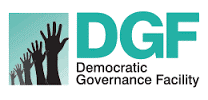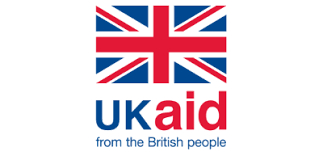
Issue 10 | June 1, 2020
Using Uganda’s Tax Policy as an Economic Stimulus in the aftermath of Covid-19
By Emmanuel Keith Kisaame, Research Fellow | @ACODE_Uganda
 In February 2020, Uganda launched its long awaited Domestic Revenue Mobilisation Strategy (DRMS). The strategy targets an increase in domestic revenue from the current level of 14% to 18% of GDP during its implementation period. However, the framers of the strategy (which was consultatively drafted between 2018 and 2019) could not have envisaged a shock (economic or otherwise) to the scale and magnitude of Covid-19. Such has been the devastating effect of the pandemic that revenue mobilisation in the country is projected to register a shortfall of about a Trillion UGX in Financial Year (FY) 2019/20. It is now unlikely that the DRMS target of increasing the country’s revenue to GDP ratio by 0.5% annually will be met.
In February 2020, Uganda launched its long awaited Domestic Revenue Mobilisation Strategy (DRMS). The strategy targets an increase in domestic revenue from the current level of 14% to 18% of GDP during its implementation period. However, the framers of the strategy (which was consultatively drafted between 2018 and 2019) could not have envisaged a shock (economic or otherwise) to the scale and magnitude of Covid-19. Such has been the devastating effect of the pandemic that revenue mobilisation in the country is projected to register a shortfall of about a Trillion UGX in Financial Year (FY) 2019/20. It is now unlikely that the DRMS target of increasing the country’s revenue to GDP ratio by 0.5% annually will be met.
The socioeconomic distortions arising from the Covid-19 contagion and the containment measures thereof heighten the age-old twin problem faced by most developing countries; that is; the country has to raise more domestic revenue in a manner that is not detrimental to the health (thriving) and survival of its revenue base. It is urgent that the country raises more domestic revenue to stimulate its economy and socially protect its population if it is to avoid further increasing a worryingly large stock of public debt. However, this has to be done in a way that enhances the survival and indeed the flourishing of businesses as well as the growth and protection of jobs.
It is intriguing therefore to note, that the approved fiscal framework for FY 2020/21 projects a 13% nominal increase in tax revenue from the projected outturn of UGX 17.5 Trillion in FY 2019/20. This is because the effects of the economic slowdown are likely to last until the end of December 2020. Therefore as the country prepares its economic stimulus packages, the tax policy of FY 2020/21 is of particular interest to all actors (ordinary citizens included) because tax revenue makes up about 97% of Uganda’s domestic revenue.
One sure way to attain an increase in revenue without necessarily increasing tax rates is to put in place a tax regime that enhances production. There are therefore sound economic considerations to support the decision made by the members of parliament. Tax policy changes should take economy-wide effects into consideration such as generation of wealth, redistribution of income and social welfare. For instance, in the case of excise duty, increasing the tax on commodities with more local content may limit the harnessing of local resources and expansion of local firms. On the other hand, the emphasis on specific rather than advalorem taxes (levied as a proportion/percentage) during a recession may worsen poverty and income inequality. This is because in case of price reductions (which are often experienced in economic downturns), the consumer is taxed more using the specific tax than the ad-valorem tax. Thus, the proposed increase in excise duty of essential commodities such as fuel and registration of motorcycles is likely to worsen poverty and income inequality in the country, because these are commodities highly demanded by the low and middle income earners. Moreover, the frequent amendment of tax laws creates complexity and uncertainty in tax policy implementation. A case in point is the use of both the specific and ad-valorem tax rates on the same commodity or introducing tax changes on an annual basis. In addition, the frequent tax changes could potentially heighten conflicts between taxpayers and tax administrators, in the event that the new changes are not adequately disseminated.
In an economic downturn or recession, tax compliance reduces because of a reduction in income as workers lose jobs and firms close which eventually results in low domestic demand and economic activity. Further, taxpayers experience tax arrears and loss-reporting businesses, which require tax authorities to offer taxpayers support to enable them cope with their tax obligations. It is therefore prudent that during a recession, government designs a tax compliance strategy by formulating stimulus and incentive packages to encourage taxpayers fulfil their tax obligations. The stimulus package could include: a reduction or maintenance in tax rates, adjusting advance tax payments to improve the cash flows for businesses, offering tax payment extensions and targeted support to high-risk tax payers. At the time of penning this article, it has been reported that Parliament has rejected the tax rate increments tabled by the Minister of Finance; opting to maintain the tax rates for FY 2019/20 to give some much needed respite to businesses in FY 2020/21.
With a looming recession in mind, it seems justified for parliament to reject the imposition a 6% withholding tax on agricultural supplies; VAT on separate commercial buildings owned by the same entity/individual; the 0.5% withholding tax on land transactions; the 0.5% on tax liability; the 10% increment on rental tax, and all new excise duty increments on fuel, soft drinks, beers and cigarettes. Here’s the reason why this seems justified. The Bank of Uganda’s Business Tendency Index which measures the current and expected outlook for production, order levels, employment, prices and access to credit has been declining for over a year and this is bound to be exacerbated the covid-19 related lockdown. This index provides insight into the business outlook of the economy and has over the past four months registered negative indices for employment which is particularly not a good sign.
Given the grim outlook for the economy, one could argue that there is actually room for additional alterations to the proposed tax measures such as raising the Pay-As-You-Earn threshold to UGX from UGX 235,000 to UGX 300,000 in order to further protect low income earners from the effects of the looming recession. Considering the proposed amendment of section 21 of the income tax and paragraph PP of the second schedule of the Value Added Tax act, the operating capital threshold for citizens could be lowered to the Shilling equivalent of USD 750,000 as of 1st July 2020. Lowering the operating capital threshold will provide relief to businesses and protect jobs especially due to the additional requirement of employing at least 100 citizens that the amendment bills are proposing.
Secondly, stating the operating capital threshold in Uganda Shillings will help protect local investors from exchange rate volatilities have already seen the Uganda Shilling fall against the dollar during the covid-19 containment period. The Shilling is bound to come under increased pressure with a recession in play. Stating the operating capital thresholds for the citizens in Shillings will help fix the threshold rather than have it fluctuate based on the exchange rate against the dollar.
Given that Uganda will most likely register an economic downturn beginning with the fourth quarter of the FY 2019/20 due to the measures implemented to reduce the spread of the COVID-19 pandemic, it is advisable that government focuses on supporting taxpayers rather than increasing tax rates. Finally, it is important to note that these proposed measures which are geared towards boosting production will enhance the economy’s ability to bounce back from the recession. The government can then put in place its proposed increments in the subsequent fiscal year with a revived economy.
|
|









+256 312 812 150 | Leave a comment | Center for Budget and Economic Governance
Subscribe To Our News Letter | Edit Subscription | Unsubscribe